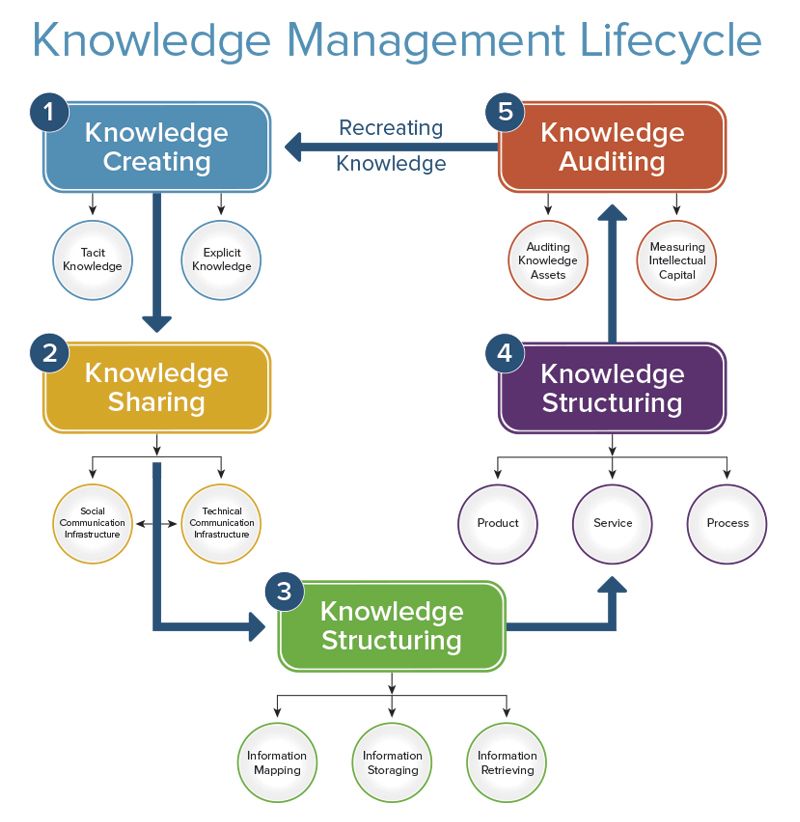
Merancang Knowledge Management Model Dengan Balance Scorecard Dari My XXX Hot Girl
What is ITSM Knowledge Management? Within the context of IT service management (ITSM), knowledge management is a specific area that focuses on the effective capture, organization, and utilization of knowledge and information within an IT service organization .

Image result for ITSM diagram Education management, Knowledge management, Development
While "knowledge management" is the accepted term for what's needed (for successful knowledge sharing), there's also the need to ensure that the real focus is on exploiting knowledge rather than simply on its collection, storage, and management. Make your knowledge management initiative about people change.

Remedy ITSM Demo Embedded Knowledge Management (IT Service Management) YouTube
Experience the best of instructor-led training and the flexibility of on-demand learning. Receive face-to-face instruction at one of our training center locations. Train at your own pace with 24/7 access to courses that help you acquire must-have technology skills. Explore live-streaming virtual courses in ITIL Certifications Training Courses.

DevOps and ITSM A Marriage That Can Work for Your Organization
Fully comprehensive, ITSM assists IT teams in the provisioning of all relevant IT services, including the planning, designing, building, implementing, deployment, improvement, and support for customers, employees, and other stakeholders. is one of the most popular frameworks used in ITSM.
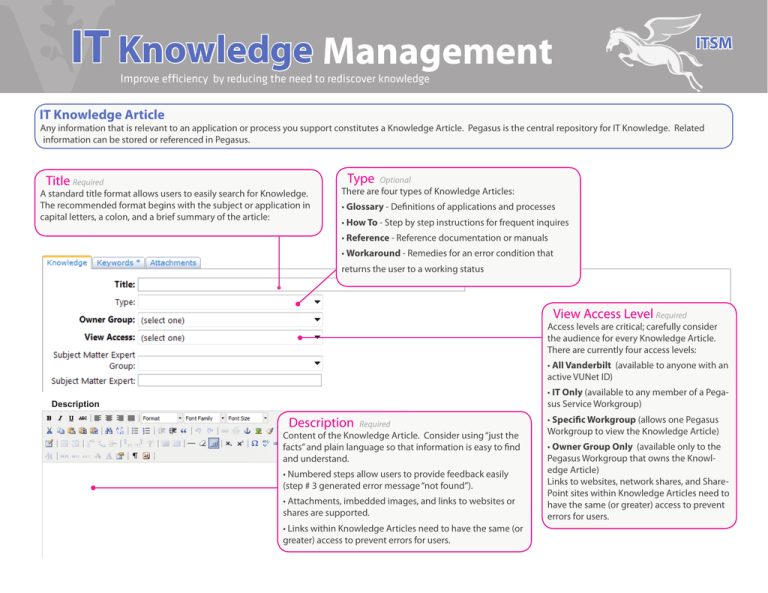
IT Knowledge Management ITSM
IT service management (ITSM) gives your organization the integrated, process-based best practices necessary to respond to rapid change, maximize resources and solve customer needs. Our ITSM portfolio includes ITIL®, COBIT, Knowledge Center Support (KCS) and Kepner-Tregoe courses to help you optimize IT assets, strategies, resources and continual improvement processes across your organization.

How ServiceNow ITSM Makes CIOs' Jobs Easier Infocenter
Knowledge management is a core component of IT Service Management ( ITSM )—a set of processes used to design, create, deliver, and support IT services. Knowledge management is the process of sharing and maintaining organizational knowledge so that IT agents and users can find the information they need when they need it.

This is what Every Project Manager should Know about ITIL Project management, Management
Knowledge management is the process of creating, curating, sharing, using, and managing knowledge across an organization and even across industries.
Knowledge Management architecture Documentation for BMC Helix ITSM Knowledge Management 21.05
In larger organizations, knowledge management and the need for technology tools to support an up-to-date knowledge base also comes into play. These ITSM tools will help mitigate some of the IT department's stress and become a tool that supports success for enterprise-level service management.

The challenges of E2E process optimization (and automation) in banking industries SAP Blogs
ITSM Basics: A Simple Introduction to Change Management To give you a simple introduction to knowledge management, I'll quickly cover the following in this ITSM Basics blog: What knowledge management is The objectives of knowledge management The benefits of knowledge management.

Knowledge Management An ITSM Lifeline to Connect Remote Employees Orange Matter
Knowledge management can be used to its full potential when an IT service desk has the capabilities to integrate it with other ITSM practices. While resolving an incident in a service desk, a technician must be able to derive and use solution articles from the knowledge base and submit new resolutions or workarounds in the knowledge base.

IT Management Knowledge Model Illustrated Ed Chen PDCA
Knowledge Management is the component of the Service Transition level of ITSM: This approach has 5 phases, each having a process and sub-process that must be carried out very efficiently. The five (5) steps are: Service Strategy: Executive-level managers establish this strategy as per their immediate and long-term needs of the business.

SKMS Knowledge Management ITSM Academy Webinar
The ITSM Processes Most Adopted by Support Centers Most Adopted Support Centres Source: HDI 2017 Technical Support Practices & Salary Report (2017) Note - not all support centers use the term "incident management" Organizations are investing in knowledge management technology The HDI report also analyzes the technologies used to provide IT support.
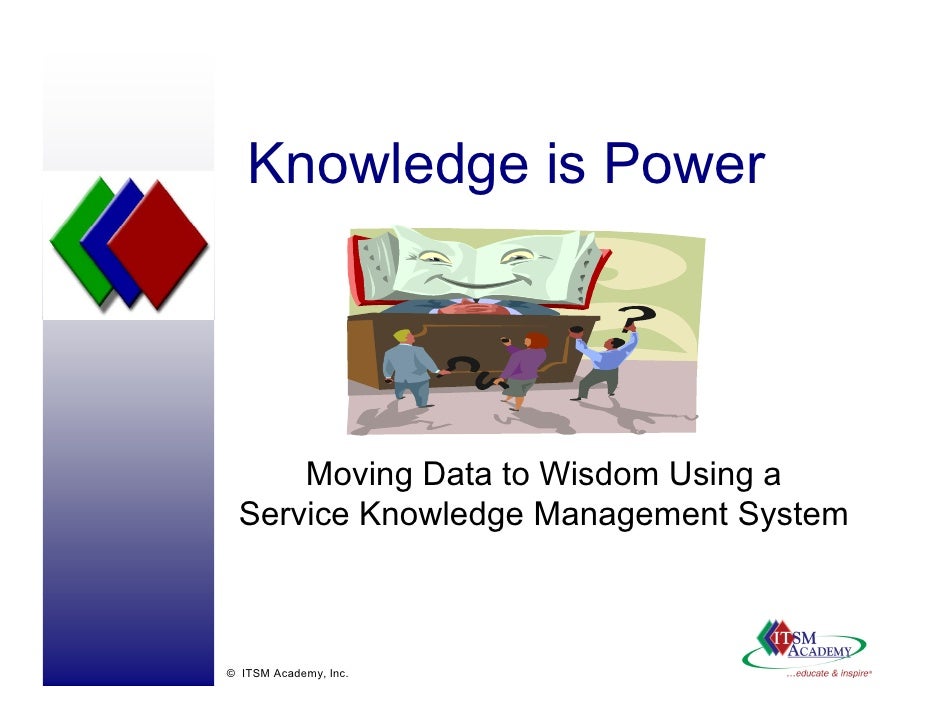
SKMS Knowledge Management ITSM Academy Webinar
A guide to IT service management | Atlassian ITSM for high-velocity teams Learn more Service Request Management Overview Best practices for building a service desk IT metrics and reporting SLAs: The What, the Why, the How Why first call resolution matters Help desk Service desk vs help desk vs ITSM How to run IT support the DevOps way

ITIL knowledge management ITSM knowledge management What is Knowledge management Knowledge
ITIL guiding principles. The ITIL framework is built on a set of guiding principles that shape its approach to IT service management. These principles provide a foundation for organizations to align IT services with business strategy, ensuring optimal value from IT investments. Below are the guiding principles of ITIL 4.
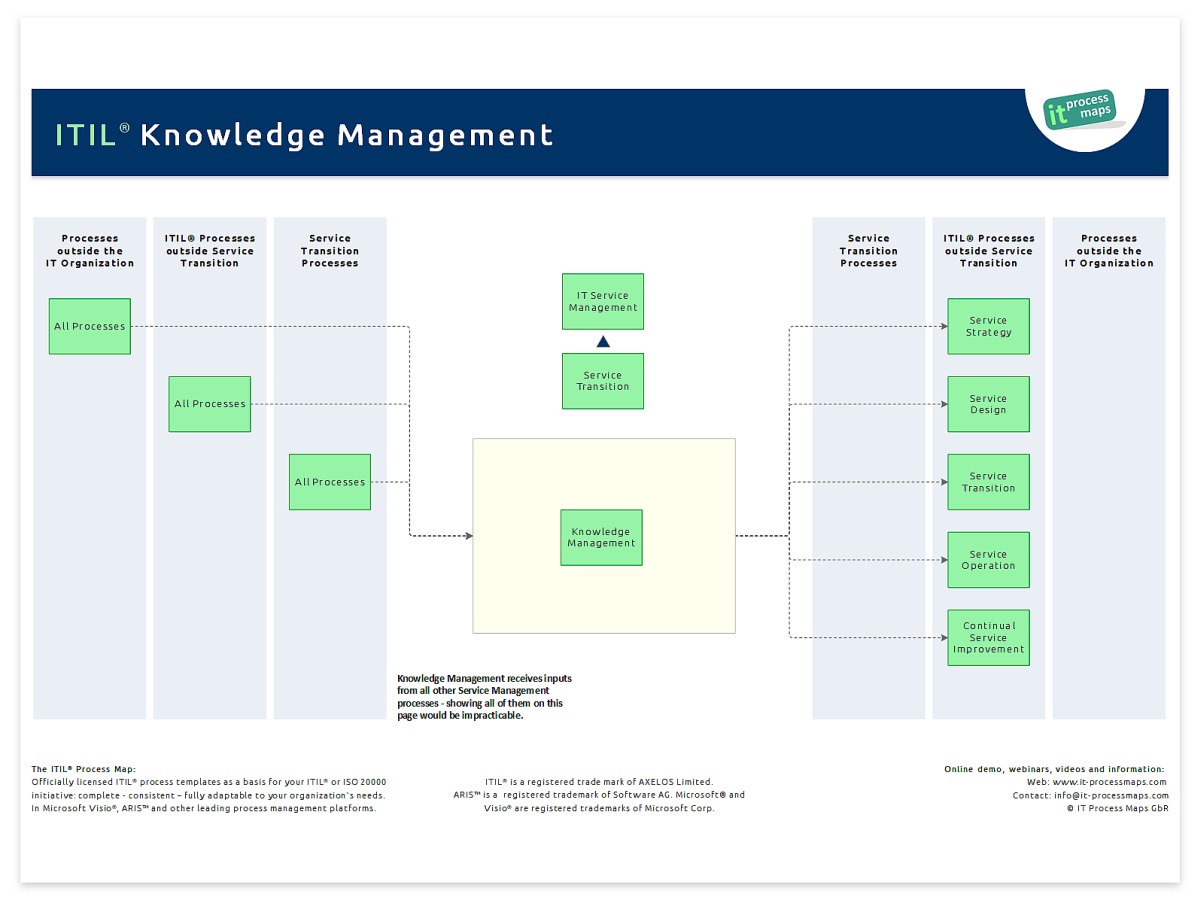
Knowledge Management IT Process Wiki
Knowledge Management System. Knowledge Management Tools are software solutions to support the capture, organization, storage, search and sharing of knowledge within an organization. The central function of such tools is to provide a knowledge database in which knowledge articles, solutions and other information can be stored in a structured manner.
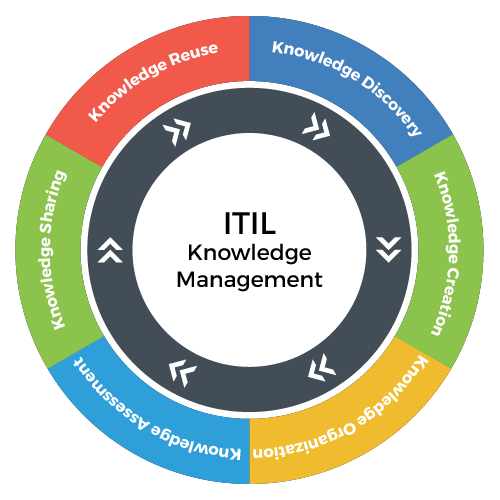
Knowledge Base Software Knowledge Management System
ITIL (Information Technology Infrastructure Library) Knowledge Management is a component of the ITIL framework, which is a set of best practices for managing IT services and processes within an organization. Knowledge Management in ITIL focuses on the effective capture, storage, organization, and distribution of knowledge and information related to IT services and processes. The goal of ITIL.